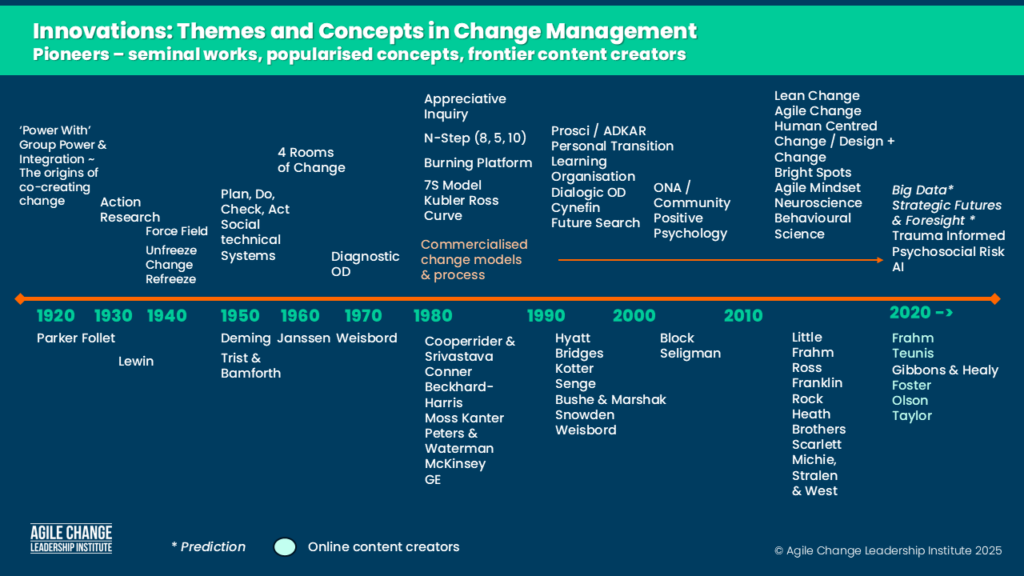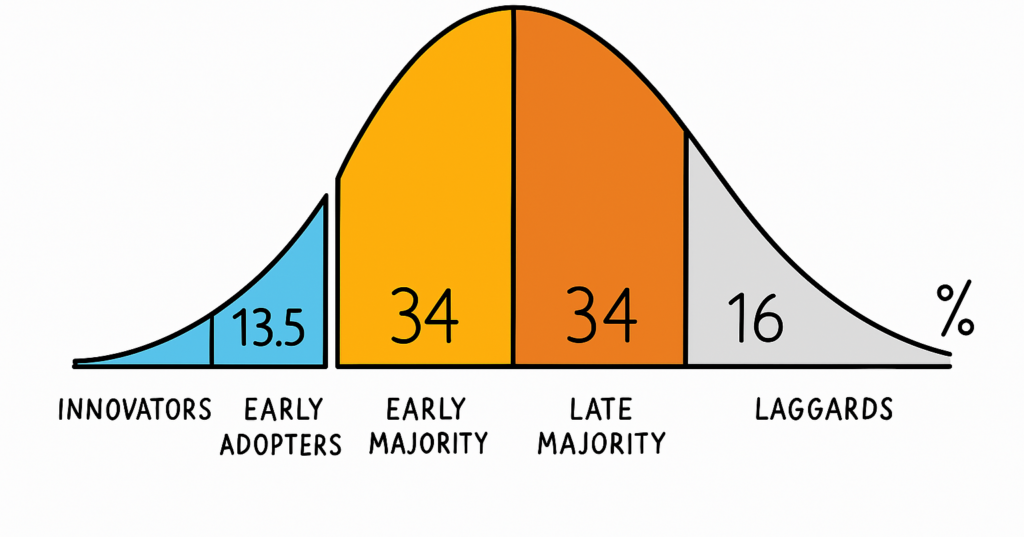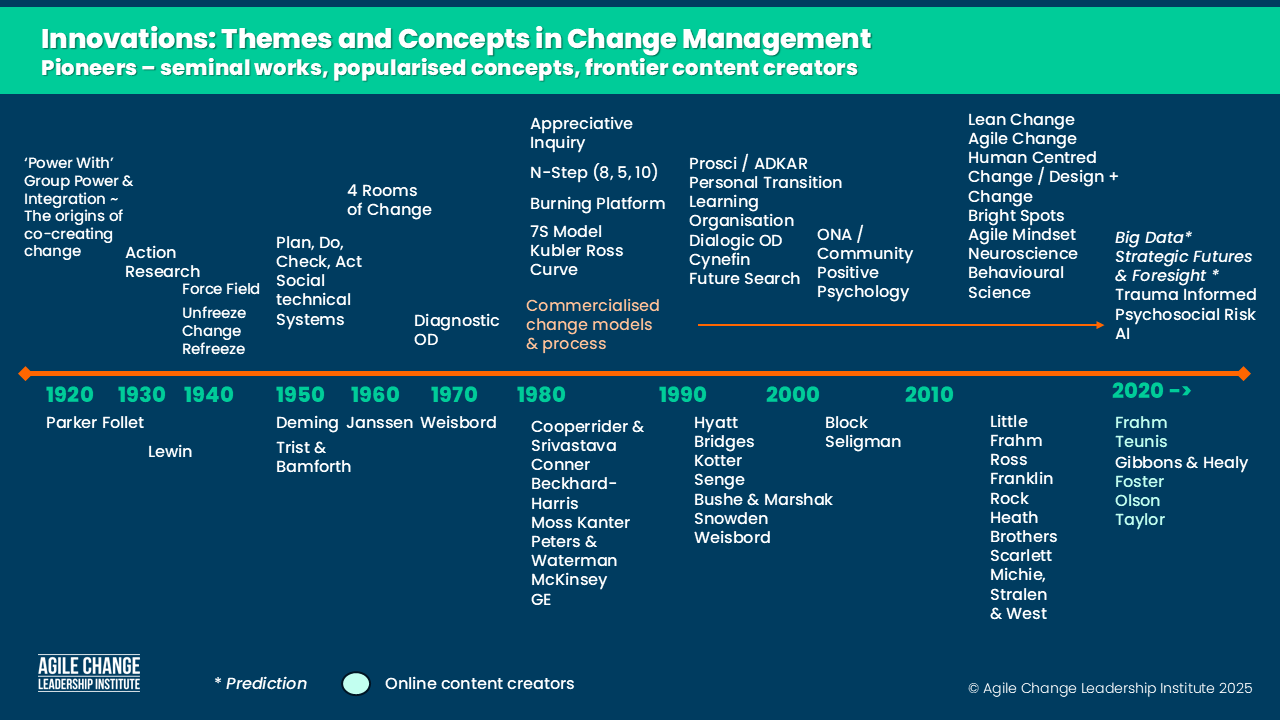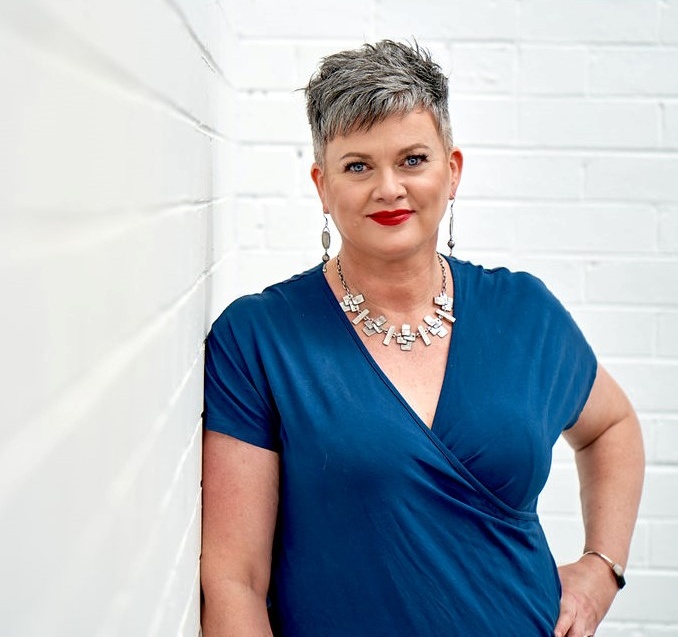Recently, I’ve been resharing early episodes of our Conversations of Agile Change podcast. The show began in 2016, it was less agile in format back then, featuring 8-minute Sharp Hits of Change (SHOC!) and the longer 20-minute Change Chats.
What’s struck me is this: either I had an extraordinary knack for finding visionaries early on, or we now have an archival dataset that reveals a surprising truth—change management hasn’t moved on much. The themes our early guests explored are the very same ones we continue to circle back to today.
Lena Ross and I recently began updating the Agile Change Leadership Certificate content and were, somewhat surprisingly, faced with the same realisation: there isn’t as much to revise as we expected. There’s been little emergence of new themes or genuinely novel voices.
So what is new in change management?
Undoubtedly AI. Maybe psychosocial risk. ESG hasn’t found solid footing. Trauma-informed practice flickered for a moment but didn’t embed. And we’re still not seriously talking about big data literacy or strategic foresight. (I think we should be.)
I’ve charted some of the historical developments and innovations in change management before, but right now, it’s hard to ignore how static things feel.

This, of course, begs the question: Do we need “new”?
If what we already have — human-centred change, design thinking, agile and lean change, neuroscience, systems thinking, community and organisational network analysis—is sufficient… why go searching for more?
It’s a fair critique. But as science fiction writer William Gibson once said:
“The future is already here—it’s just not very evenly distributed.”
All conversations about the future of change are relative to where you’re standing now.
Which brings me to Everett Rogers’ Diffusion of Innovation Curve.

I wonder if the early podcast guests, those of us who blog, write and teach in these areas, are part of that original 2.5%—the Innovators. And perhaps those who read blog posts like this, engage in LinkedIn conversations, attend meetups, or take part in our courses make up the 13.5% of Early Adopters.
That raises a question: how should Innovators respond when it feels like the field isn’t evolving fast enough?
Do we get bored and go looking for new frontiers? (Cue big data literacy, strategic foresight, and “searchlight intelligence.”)
Do we grow cynical and throw shade at the late majority or laggards?
I recently shared this observation with Gilbert Kruidenier—change provocateur, author, and course creator. He agreed: change in change management is glacially slow. But he offered a third option for Innovators that really resonated with me: the role of the gracious host.
As Gilbert puts it, Innovators can choose to “make camp” for those who follow the Early Adopters. We can light the fire, put the kettle on, and welcome others into practices we’ve been working with for years—because it’s only new if it’s new to you.
And I kinda like that. A lot.


































